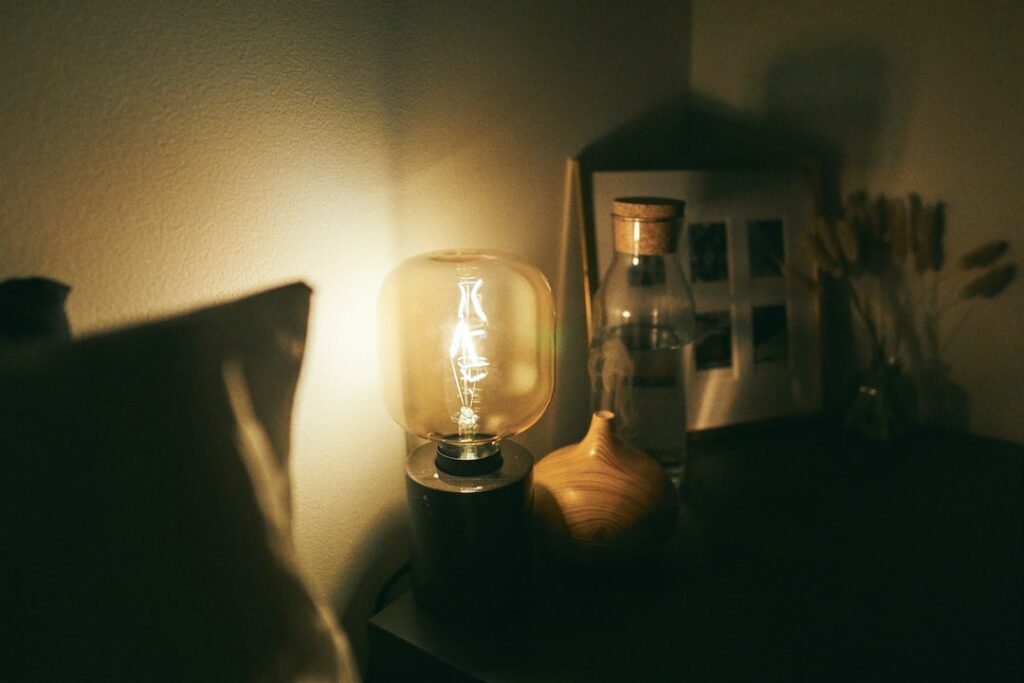


Do you like sleeping with the lights on? You might want to rethink that choice.
Sleeping with lights on can seriously affect your sleep quality, leading to a range of negative consequences for your health. Exposure to light during sleep can disrupt your brain activity and prevent deep, restful sleep.
This lack of quality sleep has been linked to issues like depression, obesity, and an increased risk of accidents.
In this article, we’ll explore the importance of darkness and the effects of light on sleep. Keep reading to find out more.
Sleeping with lights on can negatively impact your sleep quality and overall well-being. Light exposure during sleep can disrupt your sleep habits and have various side effects on your health. For instance, it can affect brain oscillations and prevent deeper sleep, leading to a lack of quality sleep. This lack of deep sleep has been linked to depression and can also increase the risk of obesity, especially when light sources are inside the bedroom.
Not getting enough quality sleep can also increase the risk of accidents, particularly while driving. Additionally, long-term light interference with sleep has been associated with chronic illnesses such as high blood pressure, heart disease, and type 2 diabetes.
It’s important to prioritize darkness during sleep to optimize your sleep quality and overall well-being.
Exposure to light during sleep can affect the quality of your sleep. The artificial light disrupts the sleep cycles and prevents you from achieving deep, restorative sleep. This can lead to various issues such as:
Exposure to artificial light, especially blue light from electronic devices, can suppress the production of melatonin, a hormone that regulates sleep. This can make it harder for you to fall asleep and stay asleep. It is important to prioritize sleep hygiene and create a dark, sleep-friendly environment to optimize the quality of your sleep.
Consider downloading ShutEye® to help you sleep better!
The impact of light on sleep quality extends to its link with depression. Exposure to light at night can disrupt your sleep and negatively affect your mental well-being. Here are a few important points to understand about the link between light exposure and depression:
By prioritizing quality sleep and minimizing exposure to light at night, you can take proactive steps towards improving your mental health and overall well-being.
Research suggests that even sleeping with a small amount of light can affect sleep and contribute to obesity. Individuals who sleep with a television or light on, are more likely to be obese.
Lack of quality sleep has been associated with increased food consumption, potentially leading to weight gain. Additionally, eating late at night may also contribute to weight gain.

Also, sleeping with lights on can make you wake up feeling more restless. Thanks to our body’s circadian rhythm, our brain determines when it is time to wake or sleep based on the light and dark cycle.
When there is light, the brain gets the signal to produce less melatonin. Thus, causing poor sleep. Poor sleep can increase the risk of accidents as your cognitive function, reaction time and alertness are affected.
Now that you understand the main effects of sleeping with the lights on, hopefully, you can try to avoid it. It is understandable that some people may be scared of the dark or need some sort of sleep aid to fall asleep.
Instead of letting your sleep health suffer, why not try using ShutEye®? There are many sleep aids that can help you sleep well at night. Try it for free now!
Fry, A. (2023) Obesity and Sleep [online]. https://www.sleepfoundation.org/physical-health/obesity-and-sleep
National Institutes of Health (2019) Artificial light during sleep linked to obesity [online]. https://www.nih.gov/news-events/nih-research-matters/artificial-light-during-sleep-linked-obesity
Stone, W. (2022) Sleeping with even a little bit of light isn't good for your health, study shows [online]. https://www.npr.org/sections/health-shots/2022/04/01/1089997121/light-disrupts-sleep